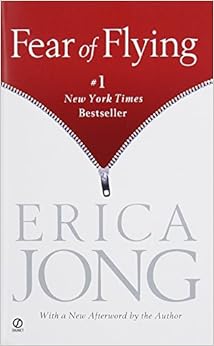

Fear of Flying became a rallying cry for women who wanted the right to have fantasies as rich and raunchy as those of men” (Jong, xi), to claim the sexual agency and vibrancy so long denied them in both life and literature.įear was a novel contemporary readers either hated or loved. Jong notes that before she wrote about the fantasy of the ‘zipless fuck’ (essentially, a casual sexual encounter), “women were not presumed to have it. Women were beginning to speak of themselves as sexual beings with subjectivity, autonomy, and agency. The bedroom was suddenly open to feminist critique. Thus, second wave feminism had a particular interest in sexual politics (Templin, pg.

Second wave feminists recognized that the political rights gained during feminism’s first wave were meaningless unless the social and private roots of women’s oppression were addressed. This new era of feminism was interested in the intersection of the personal with the political and how this intersection perpetuated gender hierarchies in the everyday lives of women. Jong was part of the first generation of the second wave feminist movement. Whether or not this is true, there is no doubt that Jong’s work spoke directly to the gender politics of her time. Some academics argue that Jong’s novel is not particularly “’a great novel’ or even a ‘great feminist novel’… a milestone… ‘a self conscious reversal of stereotypes’… cultural and literary innovation” if nota particularly great literary work (Templin, pg. Fear of Flying was the first of Jong’s work to receive notoriety, and is the text that made her both a critical and popular success. Erica Jong’s Fear of Flying is about a woman, Isadora Wing, who challenges the traditional norms for sexual womanhood in her quest for liberation.


 0 kommentar(er)
0 kommentar(er)
